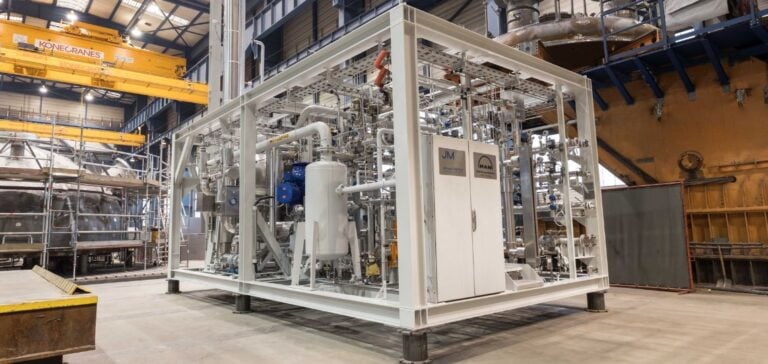The U.S. Department of Energy (DOE) is investing $41 million to support 14 projects dedicated to converting renewable energies into liquid fuels.
These innovative technologies, developed under the GREENWELLS program of the Advanced Research Projects Agency-Energy (ARPA-E), aim to transform wind and solar energy into liquids that can replace traditional fossil fuels.
This approach aims to overcome the challenges of interconnecting renewable energies with the national power grid, while reducing emissions from industrial sectors that are difficult to decarbonize.
Among the projects selected, the Georgia Institute of Technology is working on an electrochemical reactor capable of producing syngas for the manufacture of hydrocarbons.
HeatPath Solutions is focusing on an innovative methanol synthesis method, while Susteon is developing a technology to produce aviation fuels from carbon dioxide and hydrogen.
Reducing Costs and Emissions with Renewable Energies
These new technologies aim to reduce the cost of low-carbon fuels, currently estimated at around $10 per gallon.
By using low-cost renewable electricity sources, these systems can become more economically viable.
The GREENWELLS program, led by ARPA-E, seeks to store at least 50% of intermittent electrical energy in the form of carbon-containing liquids, offering an effective solution to the challenges posed by intermittent renewable energies.
The technologies developed under this program make it possible to use surplus energy from renewable production sites to create liquid fuels that can be used in various sectors, including transport.
The aim is to make these systems economically viable and facilitate a smoother, more sustainable energy transition.
Selected projects and future prospects
DOE-funded projects include a variety of innovative approaches to converting renewable energies into liquid fuels.
For example, the HeatPath Solutions project in Lewis Center, Ohio, is developing a new process for synthesizing methanol using intermittent electricity from renewable sources.
The project aims to create a method for on-site production and collection of methanol from modular reactors operating at moderate temperatures and pressures.
Meanwhile, Susteon in Cary, North Carolina, is working on a process to produce kerosene-based hydrocarbons using carbon dioxide, hydrogen and renewable electricity.
Their approach seeks to provide a new technology platform for the production of aviation fuels and other high-value fuels and chemicals.
DOE investments in these technologies mark a significant step towards a cleaner, more sustainable energy economy.
By supporting these innovative projects, the United States is strengthening its position as a world leader in the development and deployment of advanced energy technologies.
The focus on liquid renewable fuels could revolutionize the way renewable energies are integrated and used in industrial sectors, contributing to a substantial reduction in emissions and greater overall energy efficiency.






















